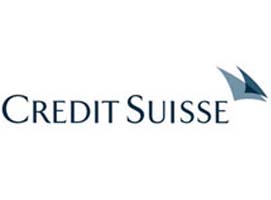Credit Suisse to pay $536 mn for violating sanctions
 Washington, Dec 17 - Credit Suisse AG has agreed to pay $536 million in settlement claims for financial misconduct by processing payments that let Iran, Libya and other nations gain access to US financial institutions, the Justice Department said Wednesday.
Washington, Dec 17 - Credit Suisse AG has agreed to pay $536 million in settlement claims for financial misconduct by processing payments that let Iran, Libya and other nations gain access to US financial institutions, the Justice Department said Wednesday.
For more than a decade, the largest bank by market capitalization in Switzerland, did business for countries such as Iran, Libya, Sudan, Myanmar and Cuba that the US had banned from its financial systems.
These countries are sanctioned in programmes administered by the Treasury Department's Office of Foreign Assets Control, and Credit Suisse violated the International Emergency Economic Powers Act.
According to court documents, between 1995-2006, Credit Suisse altered wire transfers involving US-sanctioned countries or people, deliberately removing information such as customer names, bank names and addresses from payment messages so that the transfers wouldn't be detected by filters at US financial institutions.
"Rather than adhere to the law and decline to serve these customers, Credit Suisse established a business model to allow these rogue players access to US dollars," Attorney General Eric Holder said in a statement.
"In both its scope and complexity, the criminal misconduct perpetrated by Credit Suisse in this case is simply astounding," Holder said. "This case offers a stark and disturbing example of the lengths to which some corporate wrongdoers are willing to go in seeking ill-gotten financial gains."
Holder said the bank even developed a pamphlet for its Iranian clients detailing how to fill out payment messages so as not to trigger US filters. "They created a 'how-to' book on committing a crime - and it worked well for years," he said.
The sanctions on these countries are followed by hundreds of financial institutions around the world, Holder said, and they keep funds out of the hands of nations and people deemed to be a threat to US national security and US interests abroad. (dpa)